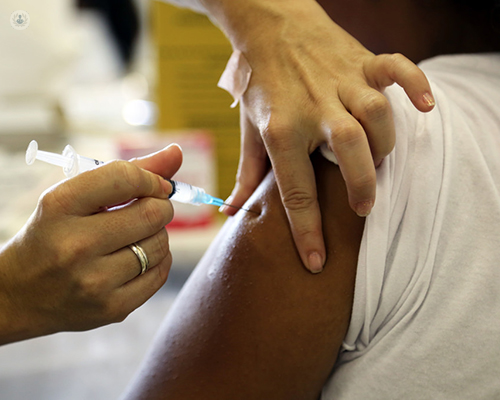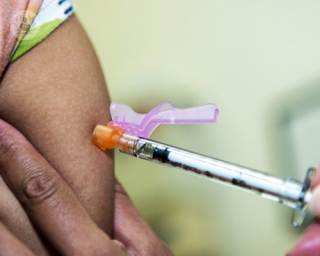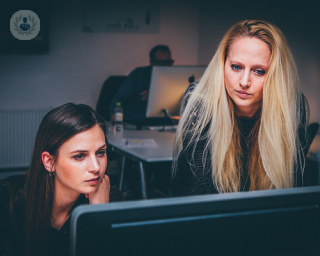Human papillomavirus vaccine (HPV)
Dr Karin Hellner - Obstetrics & gynaecology
Created on: 11-13-2012
Updated on: 09-26-2023
Edited by: Jay Staniland
What is the human papillomavirus (HPV) vaccine?
The human papillomavirus (HPV) vaccine is a vaccine that protects against certain strains of this virus, which can cause cervical cancer in women and genital warts (both in men and women). In the UK the vaccine is given to girls from age 12. To enquire about the HPV vaccine, visit your GP or book an appointment with a specialist.

Why is the HPV vaccine given?
HPV is a group of viruses that have been linked to the development of cervical cancer. HPV can be caught through sexual contact with someone who already has the virus. Whilst HPV infections are common, when someone is infected with a high-risk type of HPV, abnormal tissue growth in the cervix can result which, if untreated, can develop into cervical cancer. By giving the HPV vaccine to girls before they are sexually active, they should be protected against these high-risk strains of the virus, and hence their risk of developing cervical cancer from HPV is much reduced.
How does the HPV vaccine work?
The vaccine stimulates the body to produce antibodies that, in future encounters with HPV, will bind to the virus and prevent it from infecting cells. The vaccine is given as two separate injections in the upper arm. These are usually spaced a few months apart, and both injections are required to be protected. If girls receive the vaccine after the age of 15, then three injections are required. The vaccine is shown to protect recipients against HPV for at least 10 years, but experts expect it to last longer than this.
Care after the HPV vaccination:
The HPV vaccine does not protect against all types of the virus or other STIs, so it is important that women have regular cervical screening from the age of 25. The HPV vaccine may have some side effects. The most common are fainting, nausea and skin reactions in the area where the vaccine was applied. Your arm may feel a little stiff for a few hours after the injection is given.











